Description
ABSTRACT
Integrating Intellectual Property Rights in Regional Economic Transactions: A Global Outlook
Professor Peter Ocheme*
INTRODUCTION
The establishment of the World Trade Organization (WTO) in 1994, which has moderated the global multilateral trading systems on the one hand, has equally brought about serious tensions with the proliferation of regional trade agreements, on the other hand; thereby widening rather than bridging the gaps between the rich and poor nations, albeit more particularly for many African States even after their Independence proclamations. The attainment of political independence for such Africans did not seem to cut off the cord of economic dependence on, if not slavish entanglement with, their erstwhile colonial masters. This, at least, is the rationale for neocolonialism evidently at work in the lives of especially the sub-Saharan Africans, whether they are at home or abroad.
As if in tune with the neocolonialist dictates which were further strengthened by the emergence of other superintendent economic bodies established at the instance of the western nations,1 many African States wishing to do business in their names and styles have had to key in to the formalities drawn up by these bodies determining such participation in the global markets. It is little wonder, therefore, that in many African countries, not the least at their regional groupings,2 there exist, even if only on paper, a plethora of economic protocols designed, signed and delivered but yet aligned with the models of their European godfathers, ensuring that each and every of these African countries are tied unequivocally in commerce to the modus operandi obtainable prior to Independence and now conditioned for the separate national dependence on these godfather-nations – call them “Francophone”, “Anglophone” or “Portugophone”.
In this discuss, while it will be noted on the one hand, that significant engagements of the Asian and European regional blocs have been developed for their intellectual property trades across the globe, on the other hand, there is little to nothing beyond national laws and efforts at integrating intellectual property issues in African regional trade blocs. The necessity to harmonise intellectual property laws, policies, strategies, for enforcement of these proprietary rights for development, among African States appear to be one option left at their disposal so as to forestall the total eclipse of their economic strengths at global trade negotiations. The ideal synergy, to be recommended by this paper, will be that of interdependence in intellectual property rights, as desirably shared in commerce and industry, in much the same ways as they now synergise in donating military troops and armaments in combating regional terrorism3 or for peace keeping exercises.
The African intellectual property components of international trade, (especially in copyrighted works) appears to be the only specie of African values that cannot be swiftly eroded by the synergised transnational or multilateral agreements already paraded by the international agencies.
*Ph.D., BL., Professor of Law, Department of Public Law, Faculty of Law, Benue State University, Makurdi
- For example, the International Monetary Fund (IMF) and its sister funding house, the World Bank
- For example, the Economic Community of Central African States (ECCAS); the Economic Community of West African States (ECOWAS) and the Economic Community of Southern African States (ECSA)
- As at the mid of March, 2015 when this paper was being written, the African Union (AU) has put up the synergy to combat the “Boko Haram” terrorist group that have rampaged the North Eastern part of Nigeria and the neighbouring countries of Chad, Niger Republic and Cameroun, for over five years

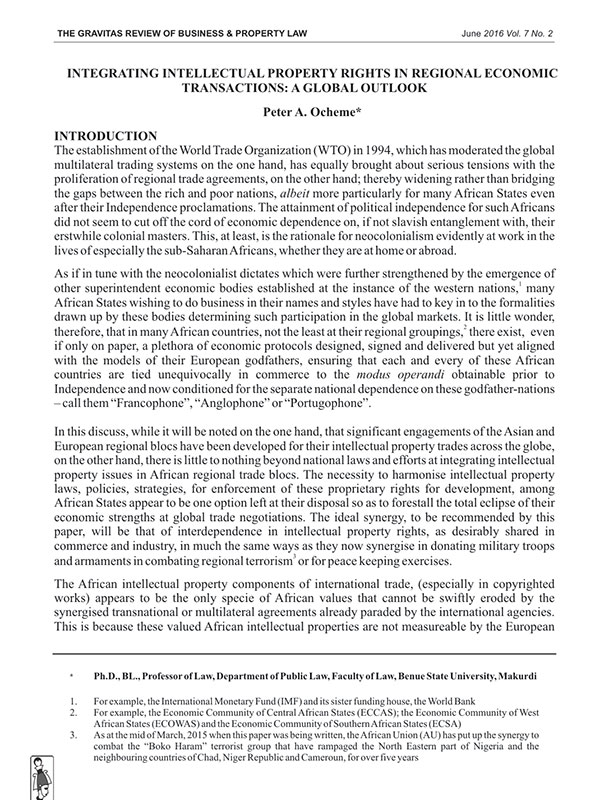
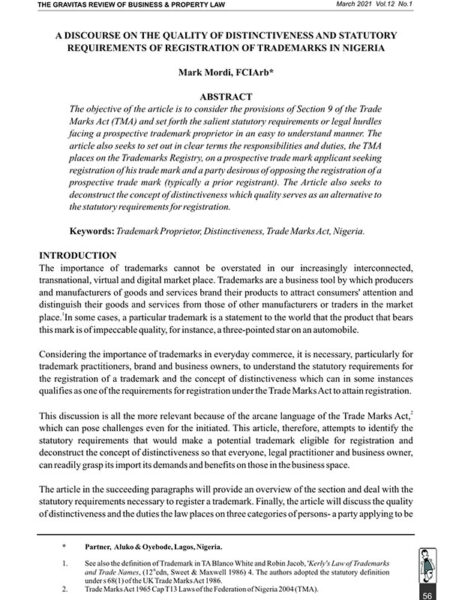
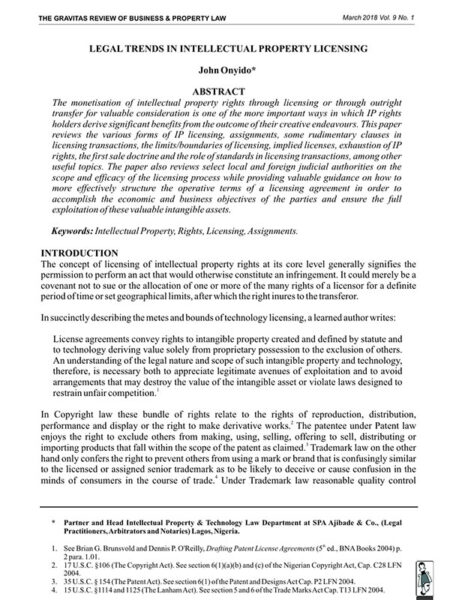
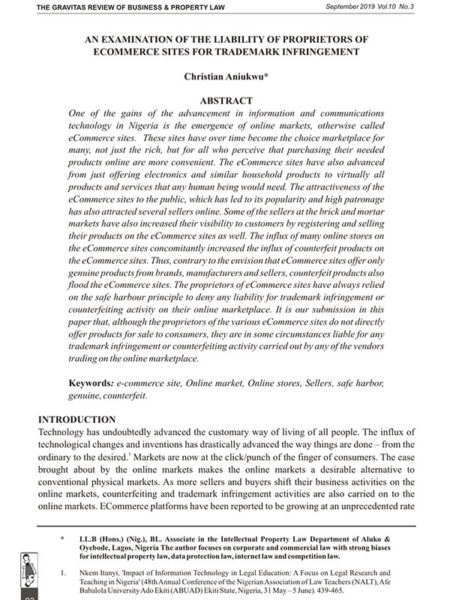
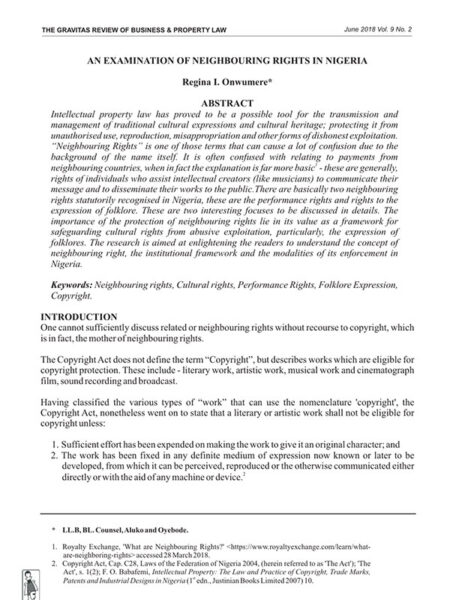


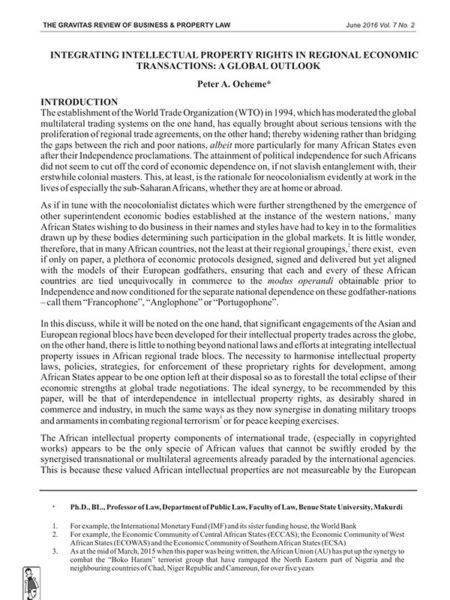
Reviews
There are no reviews yet.